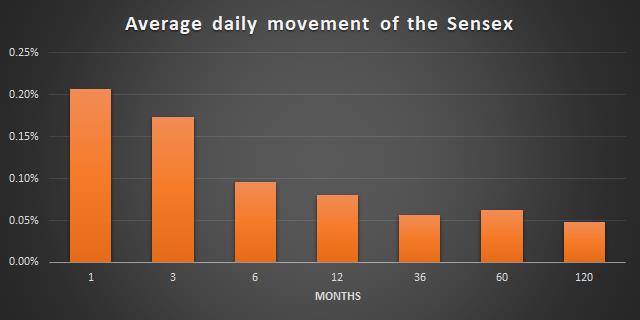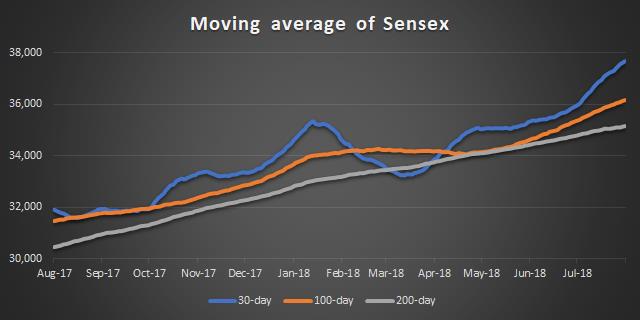At every turn in your life, you may find yourself being goaded to work harder. It is said that hard work and diligence is the only way to reach your goals. You are made to feel like constant action is what will get you to your goals.
Most people carry this attitude to their investments. They want to constantly stay on top of their portfolio. How much did I gain today? How much return has this fund given? Is this portfolio underperforming that one?
This translates into a need to take action. The market is falling, what should I do with my investments? This fund is underperforming, should I switch? The market has risen so much, should I book my profits? Unfortunately, this quest for constant action has the potential to do more harm than good to your investments.
Unlike other areas of life, where being proactive can help you progress, mutual fund investments do not require you to actively manage your portfolio. And this is partly because fund managers are already actively managing you portfolio. And these fund managers book profits when required and snap up new opportunities as they arise.
Besides, the nature of the market is such that the impact of an event smoothens out over time. Trying to act on every event which makes news often leads to making incorrect decisions. Some news, even though they seem significant when they come in, may not lead to an immediate impact along expected lines. Take for instance the impact of the US withdrawing from the Iran nuclear deal on 8th of May this year. It was expected that this will lead to a surge in oil prices as Iran is a major oil exporting country. The markets therefore would react negatively and see some short term falls. However, oil prices did not surge and after hitting $80/bbl on 25th May, it came down below $75. Stock markets also did not really fall. So if you had reacted to that news and waited to invest, expecting the market to fall, you would have been disappointed.
There are numerous other examples where a sudden fall in the market triggers a deluge of calls from our investors, asking if they should redeem, stop SIPs, or invest more. But the truth is, you don’t need to act on every market movement. Importantly, you don’t really gain much by acting so because all abnormalities eventually normalise and as they say – they revert to the mean. In other words they eventually become normal as the day to day volatility is smoothened out. .
The graph below explains this. It shows the average of the daily movements of the S&P BSE Sensex over various time periods. 
As you can see, as the period becomes longer, the average daily movement comes down. While the average movement is above 0.2% in the last one month, it is below 0.05% in the last 5 years.
This graph indicates that if you have held your funds for a shorter period, daily movement of the market will be have greater impact on your returns. The returns of a shorter term portfolio will react more than the returns of a longer term portfolio. So the longer you hold your portfolio, the more limited the impact of short term market movements will become.
Or take this moving average graph for instance:

You can see that the line for the longer period moving averages are smoother. This means that in the short term, your investments will see a lot of ups and downs. This dissipates the longer you hold.
All this has a psychological aspect as well. If you look at your portfolio on a daily basis, you will tend to react more. A 1% fall over a single day seems scarier than a 1% fall over a week. Monitoring your portfolio on a daily basis will create more anxiety than looking at it once a month.
This is why we advise investors to invest for the long term and review their portfolio once a year. Markets will always keep moving. All you have to do to gain from it is select a few good funds and keep running your SIPs. Invest on a regular basis and ignore the day to day movements of your portfolio.
We like to call this the lazy investor formula. The lazy investor is loath to look at their portfolio every day. They set up a SIP and forget about it. The money keeps getting invested. They review their portfolio annually and start paying attention to it only when they need the money.
And in doing this, the lazy investor ends up gaining more as they are not constantly trying to time the market and therefore taking wrong decisions. So invest in the right funds and sit tight till your goal is reached.







